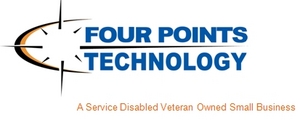Agencies are using data in new ways — sharing across departments, in the field, and with remote workers and the public. That unleashes the power of data to serve the mission, make informed decisions and make programs more effective.
It also exposes the data to more risks, and not all of them can be avoided. That means you need to plan not just for prevention, but for recovery.
Data is an agency’s most critical asset, said Brad Montgomery, Director, Federal Presales, at Dell Technologies. “And if your data isn’t protected, you can’t put it into production,” he said.
Distributed Data Makes Protection More Complex
While hackers, ransomware and insider attacks are attention-grabbing threats, data is also vulnerable to more mundane risks — accidental deletions, misconfigurations, file corruption, failed hardware. “We’ve had customers that lost data because of a sprinkler system malfunction,” Montgomery said.
Reliable backup is essential to recovering data and restoring operations. However, as agencies modernize and migrate to the cloud, existing data protection may not provide as much security as before. Many modernization projects forget to include upgraded backup. New applications or platforms and their service agreements may change who’s responsible. Too often, agencies read the fine print of their cloud provider contract only to discover that it still rests on them to protect their data, Montgomery said.
Where agencies use the data has grown harder to keep track of, too. “Data does not live just in the data center,” Montgomery said. “It’s in the cloud, it’s in the remote offices, it’s on mobile devices. And as that data becomes more distributed, it’s harder to protect.”
How Dell Technologies Helps
Dell Technologies offers a comprehensive product that also reduces complexity. APEX Backup Service is cloud-native and designed to protect software-as- a-service (SaaS) applications, on-premise and cloud- based workloads, and all endpoints, including laptops and mobile devices, according to Montgomery. It supports role-based access control and multifactor authentication, helping secure data wherever it’s being used.
“We have anomaly detection to catch signs of intrusion, quarantine capabilities and curated snapshots that let you roll back in time to the last known good copy,” he said.
Because the software is delivered as a service, it requires no added hardware — speeding up implementation and relieving the complexity that backup infrastructure introduces. Most importantly, it brings backup protection into a single framework and administration into a single management console.
Dell Technologies’ APEX also addresses increasing security concerns: It meets Federal Information Processing Standard 140-2 encryption requirements and is authorized under both FedRAMP and the Association of International Certified Professional Accountants (AICPA) Systems and Organization Controls 2 (SOC 2).
And APEX addresses the threat that’s keeping agency leaders up at night: ransomware. “We have modern tools to fight ransomware,” Montgomery added. “Everything is air-gapped and immutable. Metadata is separated from the data shards themselves. [It’s] a holistic approach to solving those data protection challenges.”
This article appears in our guide, “Decision Intelligence: New Possibilities for Data-Based Decision-Making.” To read more about how agencies are using data to address practical issues, download the guide.
![]()






Leave a Reply
You must be logged in to post a comment.